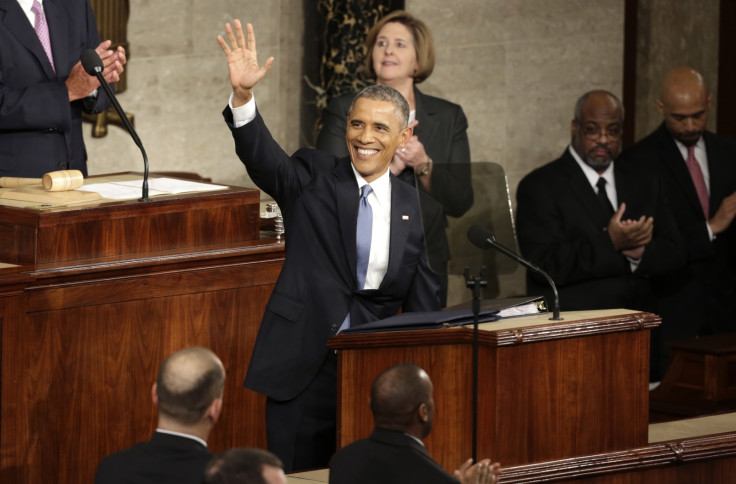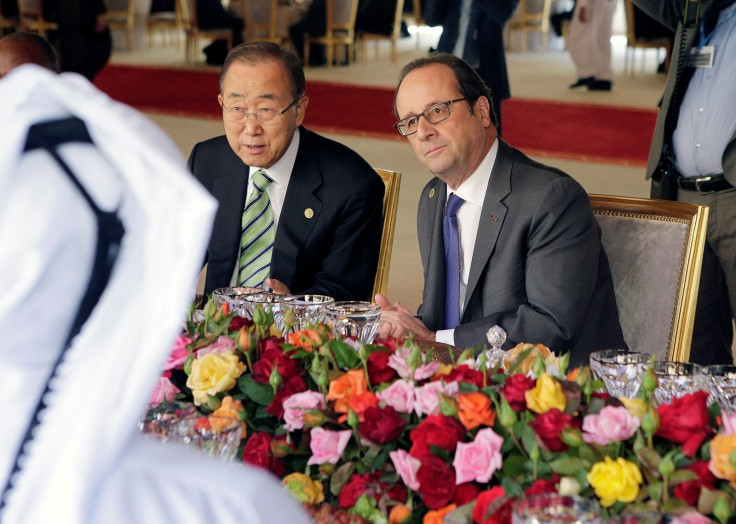Could Donald Trump really pull out of the Paris Agreement?
It is not yet clear how the president-elect plans to leave the Paris climate agreement.
The results of the US presidential election, coming just a day after the start of the Marrakech COP22 conference, have been met with anxiety by environmental activists. During his campaign, President-Elect Donald Trump has mentioned that he would pull the US out of the Paris Agreement, which has led delegates at the conference to worry that he will put the future of the treaty in jeopardy.
"The Paris Agreement is ground-breaking because it requires everybody, including developing countries, to participate in the global effort to address climate change," Dr Annalisa Savaresi, lecturer in Environmental Law at the University of Stirling, told IBTimes UK.
"Everybody has to reduce emissions under the Paris Agreement, including the US, which was not a party to the Kyoto protocol. With Trump's election all of this now hangs in the balance, although it is not clear what he will do next."
In practice, there are three different pathways that the US administration could take to denounce the Paris Agreement.
Not do anything
The Paris Agreement does not set individual targets for countries but it identifies the common goal of limiting global warming to 2C above pre-industrial levels. Each country that ratifies the agreement submits a plan of how they plan to contribute to achieve this global goal – these plans are known as Nationally Determined Contributions or NDCs.
The US ratified the agreement in September 2016. The easy way out for the Trump administration would be not to do anything to honour the NDC that the US submitted. The Obama administration submitted a comprehensive plan to reduce its greenhouse gas emissions by 26-28% below its 2005 level in 2025 so the new president could simply stop taking steps to achieve this plan.
"There is a precedent for this kind of (in-)action. Canada under the Kyoto protocol didn't do anything to meet their targets. Faced with the possibility to be shamed by other countries through the compliance procedures under that treaty, they decided to pull out altogether," Savaresi says.

It is not clear what kind of consequences the US would face if it decided to follow this route. Under the Paris Agreement, there is a legal obligation for parties to submit their NDCs and to report on what they are doing to implement them.
However, they have no legal obligation to achieve the objectives identified in their NDCs – only to report progress in implementing and achieving their NDCs. Furthermore, Parties have yet to agree on a mechanism to review the actions taken by individual countries to meet their NDCs.
"The rules on the kind of scrutiny states will be submitted to under the Paris Agreement are still being negotiated. The Paris Agreement is vague about these details and talks about compliance rather than enforcement. Even when these rules are adopted, it is improbable that sanctions will be imposed on parties that are found not to be in compliance with their obligations," Savaresi points out.
"However, if the incoming US administration wants to send a strong signal of rejection, they may want to choose a more drastic, visible course of action," she adds.
Get out of the treaty
The US could simply decide to get out of the Paris Agreement. This is in theory possible, but according to the rules laid out in the treaty, at the earliest the US withdrawal would only take effect in November 2020. This is because countries can only announce their intention to withdraw three years after the treaty has come into force and the withdrawal process then takes one year.

In this case, there would be no sanctions for leaving – but the US would probably be shamed by the international community. However, this is something that the incoming US administration may not be too worried about.
"What stops states from pulling out of the treaty is peer pressure and fear that they will be shamed by other countries. Countries actually care about what their peers think, it is a form of soft power. That being said, it all really depends on how supportive the government back home is of the climate agenda. So in the case of the US, Trump's election could be a game-changer," Savaresi says.
Leaving the entire UN climate process
The Trump administration could also decide to exit the mother treaty to the Paris Agreement – the UN Framework Convention on Climate Change (UNFCCC). This process would only take a year.
If the Trump administration wants to send a strong signal against climate change, withdrawing from both treaties seems to be a likely option – even though again, the country would surely be severely criticised by its international partners.

James Thornton, CEO of ClientEarth, a group of environmental lawyers, warned: "Withdrawing from the UNFCCC entirely would seriously damage the US's international reputation. If it were to happen we would hope it would be met with strong condemnation by the international community, particularly China and India."
If the US did take such bold action, however, it could endanger the whole agreement: some countries may want to follow in the US's footsteps, thus undermining the political support on which the treaty relies.
© Copyright IBTimes 2025. All rights reserved.






















